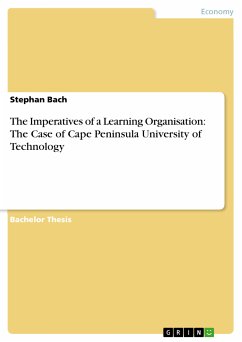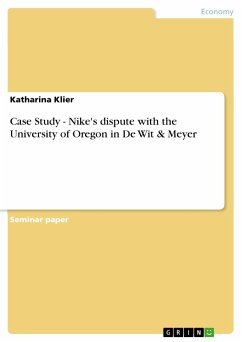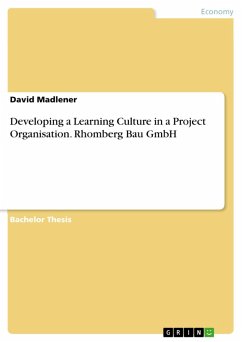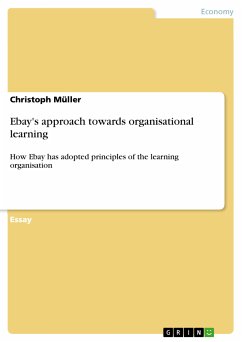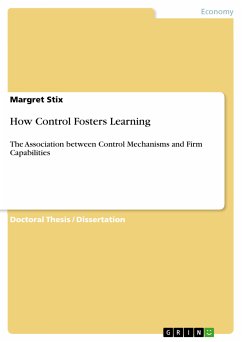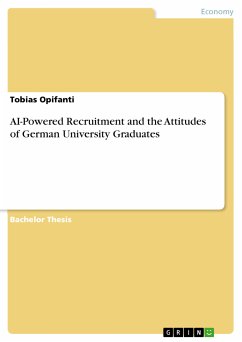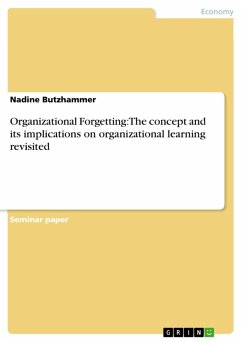Bachelor Thesis from the year 2012 in the subject Business economics - Business Management, Corporate Governance, grade: 1,0, , language: English, abstract: Organisational learning was first mentioned in the management literature by Drucker (1958:47). He stated: "management is first and foremost about the continuing development of the organisation and its employees. The demands and needs of the environment are constantly evolving and management is about adjusting the company according to the needs and demands of the environment". Since then the literature available extensively covers the term organisational learning. Several authors in the fields of management, economics, sociology, psychology and education wrote about the subject. As a result the field of organisational learning became rather fragmented. Studies have been carried out in separate disciplines independent of each other (Boreham and Morgan, 2004:307-325). Though the field has become fragmented because of the diversities in approaches to this study, it is possible to identify a core definition of what organisational learning is (Lundvall, 2001:273-291). According to Robinson (2010:1-13) early studies focused mainly on the decision-taking processes as a form of organisational learning. For example Argyris (1977:115-125) stated that organisational learning is a process of detecting and correcting error. Another definition from Hedberg (1981:1-27) argues that organisational learning is the process through which managers seek to improve employees' desires and abilities to understand and manage the organisation and its task environment so that employees can make decisions and function effectively. Later the influences of organisational learning on the whole organisation became evident. The work of Armstrong and Foley (2003:74-82) indicates that organisational learning is a process that takes place in organisations which enables learning of its members in such a way that positively valued outcomes are created. The expected outcomes are innovation, efficiency and better alignment with the environment leading to competitive advantage of the organisation. The effects of organisational learning are manifested in the organisation's systems, structures and culture. More recent literature defines organisational learning as a dynamic process of creation, acquisition and integration of knowledge with the aim to develop resources and capabilities that contribute to improved organisational performance (López, Péon and Ordás, 2005:227-245).
Dieser Download kann aus rechtlichen Gründen nur mit Rechnungsadresse in A, B, BG, CY, CZ, D, DK, EW, E, FIN, F, GR, HR, H, IRL, I, LT, L, LR, M, NL, PL, P, R, S, SLO, SK ausgeliefert werden.

